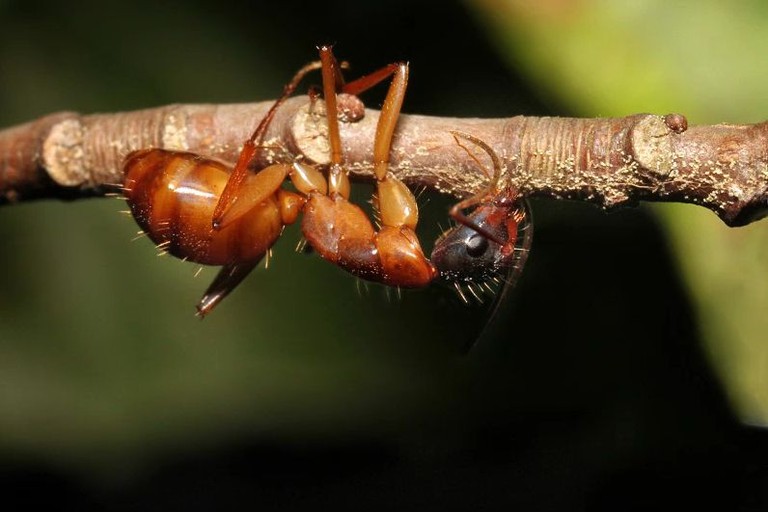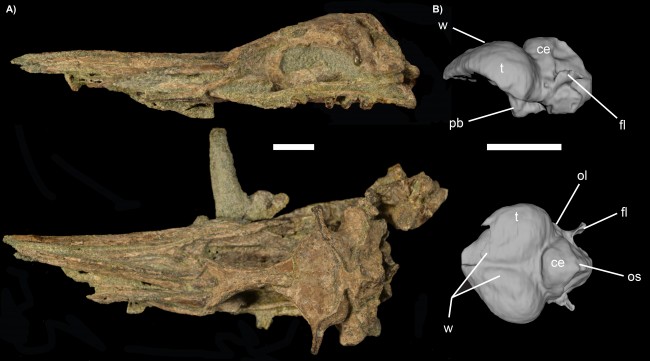搜索结果: 1-15 共查到“brains”相关记录31条 . 查询时间(0.106 秒)

Study offers neurological explanation for how brains bias partisans against new information(图)
大脑 神经学 信息生物学
2023/6/26


Why do woodpeckers peck? New discovery about bird brains sheds light on intriguing question(图)
鸟类大脑 交际鼓声 动物行为学
2023/6/26

Using new technique, researchers make surprising discoveries about how flies’ brains respond to tastes(图)
果蝇 大脑成像 神经活动
2023/6/26
Climate changed the size of our bodies and, to some extent, our brains
evolution climate changed brain body environmental
2021/8/4
The average body size of humans has fluctuated significantly over the last million years and is strongly linked to temperature. Colder, harsher climates drove the evolution of larger body sizes, while...
2018年冷泉港会议:神经系统的秩序与紊乱(Cold Spring Harbor conference on Brains & Behavior: Order & Disorder in the Nervous System)
2018年 冷泉港会议 神经系统
2018/1/20
We are pleased to host the 83rd Cold Spring Harbor Symposium which will focus on Brains & Behavior: Order & Disorder in the Nervous System. Previous Cold Spring Harbor Symposia on Function & Dysfuncti...
Kent State Research Group Publishes Analysis of Primate Brains in Top Science Journal
Kent State Research Group Primate Brains Top Science Journal
2017/12/19
How different are human brains compared to the brains of other primates such as chimpanzees, gorillas and monkeys? It’s one of many important questions that scientists have asked for years while pursu...

'Zombie ant' brains left intact by fungal parasite(图)
Zombie ant brains left intact fungal parasite
2017/11/23
A fungal parasite that infects ants and manipulates their behavior to benefit the fungus' reproduction accomplishes this feat without infecting the ants' brains, according to a study led by Penn State...

Researchers Find Pathologic Hallmarks of Alzheimer’s Disease In Aged Chimpanzee Brains(图)
Researchers Pathologic Hallmarks Alzheimer’s Disease Aged Chimpanzee Brains
2017/9/4
The brains of aged chimpanzees, our closest living relatives, show pathology similar to the human Alzheimer’s disease (AD) brain, according to a new, multi-institution research study.The findings, in ...

Kent State Researchers Help Find Pathologic Hallmarks of Alzheimer’s Disease in Aged Chimpanzee Brains(图)
Kent State Researchers Pathologic Hallmarks Alzheimer’s Disease Aged Chimpanzee Brains
2017/9/1
Dementia affects one-third of all people older than 65 years in the United States. The most common cause of dementia is Alzheimer’s disease, a progressive, irreversible brain disease that results in i...
Why big brains are rare
big brains rare
2017/1/9
As a species, we’re so brain-proud it doesn’t occur to most of us to ask whether a big brain has disadvantages as well as cognitive benefits.“We can think of tons of benefits to a larger brain, but th...
The brains of wild cats don’t necessarily respond to the same evolutionary pressures as those of their fellow mammals, humans and primates, indicates a surprising new study led by a Michigan State Uni...

Losing the ability to fly gave ancient penguins their unique locomotion style. But leaving the sky behind didn’t cause major changes in their brain structure, researchers from The University of T...
Why do dolphins evolve large brains relative to the size of their bodies, while blue whales and hippos have brains that are relatively small?While there has been much speculation regarding brain size ...
Study Shows Animals with Larger Brains are Best Problem Solvers
Animals Larger Brains Best Problem Solvers
2016/2/22
Why did some species, such as humans and dolphins, evolve large brains relative to the size of their bodies? Why did others, such as blue whales and hippos, evolve to have brains that, compared to the...


